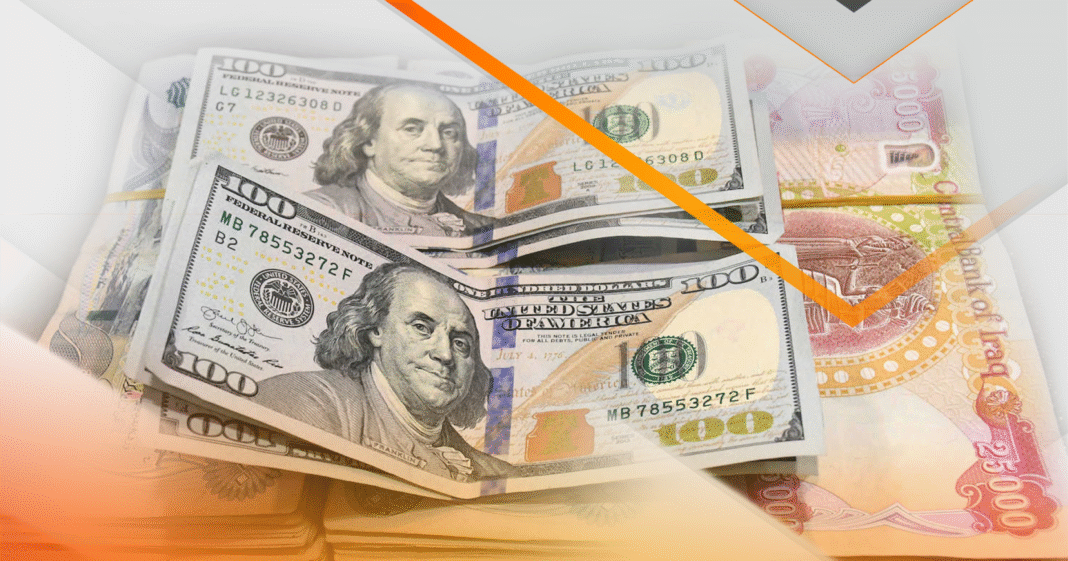Iraq dollar rates rise once again, as the US Dollar gains value against the Iraqi dinar in Baghdad and Erbil. Local exchange markets reported higher prices, showing continued currency fluctuation in the country’s major financial hubs.
In Baghdad, the central Al-Kifah and Al-Harithiya stock exchanges opened with the dollar priced at 142,400 dinars for every 100 dollars. This marks a slight increase from the previous rate of 142,350 recorded earlier.
Exchange shops in Baghdad followed suit. The selling price at most stores reached 143,500 dinars per 100 dollars. Meanwhile, the buying price dropped to 141,500 dinars. These numbers reflect growing demand for the dollar, possibly driven by regional trade pressures or market speculation.
Erbil’s markets also showed a rise. Exchange stores in the Kurdistan Region capital sold the dollar at 142,400 dinars and bought it at 142,200 dinars. Though the change appears small, it highlights a steady upward trend in dollar value across multiple cities.
The continued shift suggests increasing demand for the dollar in Iraq. Traders, importers, and travelers all contribute to the rising exchange rates. Additionally, global economic conditions and shifts in oil prices often impact local currency movements.
While the Central Bank of Iraq monitors these fluctuations closely, private exchanges still dominate daily trade activity. Their influence often drives short-term pricing patterns in cities like Baghdad and Erbil.
As Iraq dollar rates rise, businesses and consumers alike watch the changes with concern. Higher exchange rates can lead to rising costs for imported goods and pressure on everyday spending. Many fear prolonged increases could affect inflation and economic stability.
The government has taken steps to stabilize the dinar through tighter control of dollar supply and increased foreign currency reserves. However, real-time trading dynamics continue to play a major role in determining daily market rates.
With Iraq’s economy tied closely to global financial shifts, further volatility remains possible. Monitoring exchange rate trends will be vital in the weeks ahead, especially for businesses and financial institutions.


